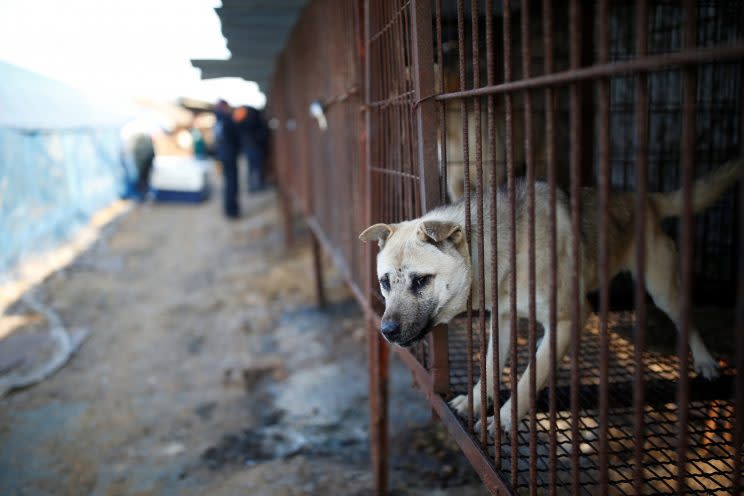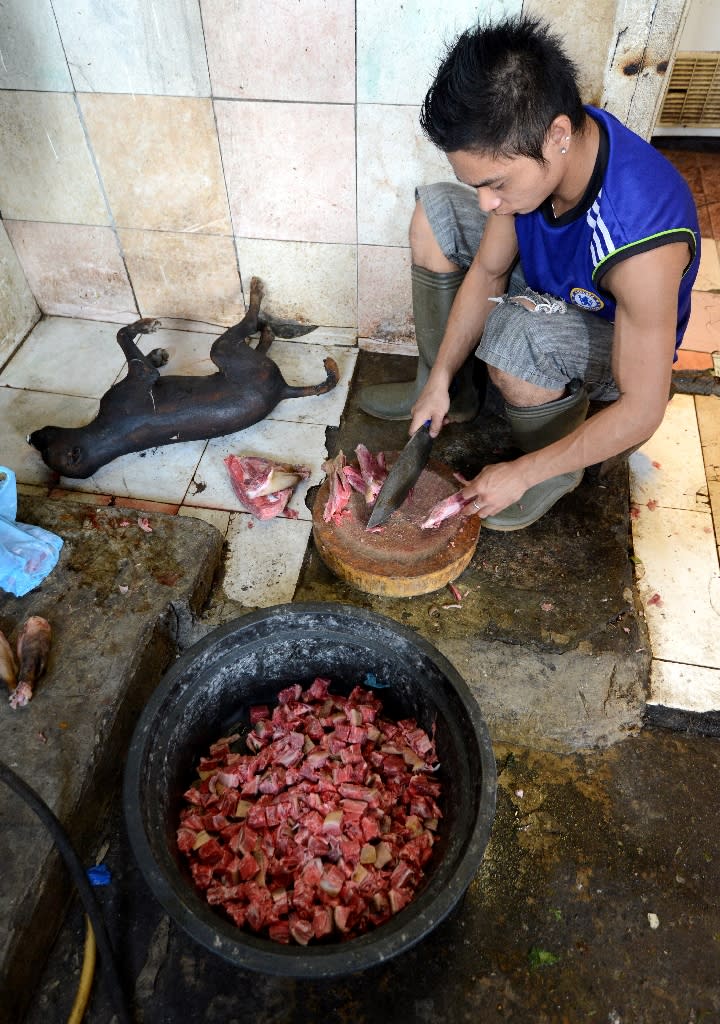Beyond China, dog meat is also consumed in other countries like Korea
Recently, it was reported that tourists in Bali unwittingly ate dog meat that was sold as chicken, leading to some outcry over both the treatment of man’s best friend and the potential health problems.
Meanwhile in China, an annual dog meat festival called the Yulin “Lychee and Dog Meat Festival” began on 21 June and will run till 30 June, an event which has drawn the ire and condemnation of animal lovers worldwide.
Much of the anger has been focused over dog meat being sold at the 10-day festival in China, but did you know that dog meat consumption is also commonplace in countries such as South Korea, Vietnam and Nigeria?
(Warning: Graphic image of dog meat preparation below)
In South Korea, dog meat or “gaegogi” is commonly served boiled as a dish called “gae soo yook”, or in a stew called “boh shin tang”, which literally translates to “rejuvenating soup”.
It is believed that dog meat has medicinal properties and that the consumption of such meat alleviates fatigue and improves virility in men.
It is usually consumed in the summer months, like in China. Dog eaters believe that dog meat will increase body temperature and help to fight off the summer heat.
The nureongi dog (pronounced as noo-rong-yee) is used in the preparation of such dishes, and is also known widely as ‘a dog that can be eaten’. It is native to Korea and commonly raised as livestock, not a pet.
In northern Vietnam, the consumption of dog meat is believed to bring good fortune, especially when consumed during the latter half of the lunar month. It is also believed to raise libido in men.
The dogs usually come from dog meat farms, though there have been many reports of pets being stolen from homes and strays being taken from the streets to be killed for their meat.
In both South Korea and Vietnam, the dogs are boiled to remove the fur before consumption.
Meanwhile, in several parts of Nigeria, it is believed that eating dog meat improves one’s immunity against illnesses (such as malaria) and wards off witchcraft.
The popular delicacy is commonly referred to as “404”, a reference to how dogs run as fast as a Peugeot 404 car.
There are also reports that locals preferred to consume canines as opposed to bush meat (meat from wild animals in Africa), believing that it is “anti-Ebola”.
And if you think European countries don’t eat dogs, Switzerland has something to say about that. Sale of dog meat is illegal in the country, but not consuming it.
Similarly, Taiwan banned the sale and consumption of dog and cat meat earlier this ear, although there are still reports of an underground trade.
Raids on illegal dog slaughterhouses have also happened in the Philippines, and consumption of dog meat has also been reported in countries like Indonesia and India.
Follow Yahoo Lifestyle Singapore on Facebook.





